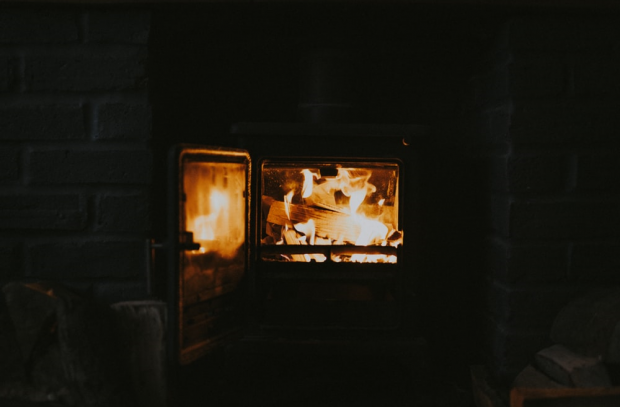
Government takes bold action to cut pollution from household burning
Written by Defra Press Office

This morning there has been widespread positive coverage, including on the front pages of the Telegraph, Times, and the i of the government’s action to cut pollution from household burning.
With wood burning stoves and coal fires being the single largest source of the pollutant PM2.5 – emitting twice the contribution of industry and three times the contribution of road transport – these measures will help to tackle a form of pollution that penetrates deep into our hearts, lungs, and blood, and has been identified by the World Health Organisation as the most harmful air pollutant for human health.
Sales of bagged traditional house coal and wet wood in units under 2m3 will be phased out by February 2021, as will the sale of loose coal direct to customers via approved coal merchants by February 2023, allowing the public to switch to cleaner alternatives. There will also be limitations on the sale of manufactured solid fuels for domestic combustion from February 2021, with only those fuels with a low sulphur content and which emit a small amount of smoke being permitted for sale.
This phased implementation will ensure that public and suppliers have time to move to cleaner alternatives such as dry wood and manufactured solid fuels, while continuing to be able to use their stoves and open fires at home.
These alternatives not only produce less smoke and pollution that wet wood or coals, but are also cheaper and more efficient to burn, meaning that householders – including those who rely on stoves and open fires for heat – will not see their fuel costs rise.
Environment Secretary George Eustice, said:
Cosy open fires and wood-burning stoves are at the heart of many homes up and down the country, but the use of certain fuels means that they are also the biggest source of the most harmful pollutant that is affecting people in the UK. By moving towards the use of cleaner fuels such as dry wood we can all play a part in improving the health of millions of people.
This is the latest step in delivering on the challenge we set ourselves in our world-leading Clean Air Strategy. We will continue to be ambitious and innovative in tackling air pollution from all sources as we work towards our goal to halve the harm to human health from air pollution by 2030.
These measures have been welcomed by air quality campaigners, who have highlighted the importance of the work of government to improve air quality for the benefit of the nation’s health.
Professor Stephen Holgate, Royal College of Physicians’ special adviser on air quality said:
We know that air pollution causes significant health issues across the life course. It is key that the Government does everything it can to improve the air we all breathe. Today’s announcement on domestic burning is a welcome step forward, and will in time, play a role in reducing the pollution associated with PM2.5.
Inhaling combustion particles from any source is harmful, but more so than ever when it’s directly within your home.
Burning coal for heat and power has to stop and strong guidance is needed to insist that if wood is burnt in approved stoves, it is non-contaminated and dry.
John Maingay, Director of Policy and Influencing at the British Heart Foundation, said:
Wood and coal burning accounts for 40 per cent of harmful levels of background PM2.5 in the UK, and our research has shown that toxic PM2.5 can enter the bloodstream and damage our heart and circulatory system.
Phasing out sales of coal and wet wood is a vital first step towards protecting the nation’s health from toxic air. This is a welcome move from a Government showing its ambition and commitment to tackling air pollution.
However, we must not stop there. Air pollution is a major public health challenge, and it requires an urgent and bold response.
Alongside these measures, we have committed to setting an ambitious, legally-binding target to reduce fine particulate matter through our ground-breaking Environment Bill, and are ensuring that local authorities have a clear framework for tackling air pollution – including making it easier for them to enforce of smoke control areas.
Our Clean Air Strategy, which has been praised by the World Health Organisation as “an example for the rest of the world to follow”, commits to further measures to tackle a range of pollutants including PM2.5, ammonia, and sulphur dioxide from all sources, and we are working with local authorities across the country to help them target the pollution affecting their communities.
Follow Defra on Twitter, and sign up for email alerts here.
Continue reading on Defra Website...





